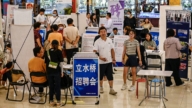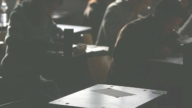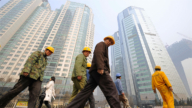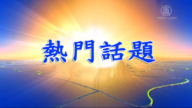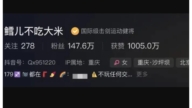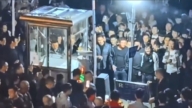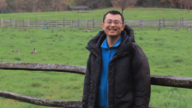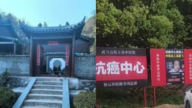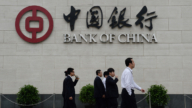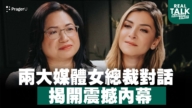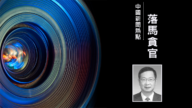【新唐人2012年1月31日讯】在西方国家随处可见的苹果3C产品,因为掌握了全球化的生产技术,在过去十年,美商苹果成为全球最强大、最赚钱和最成功的公司之一。然而,苹果在中国的二家代工厂相继发生爆炸,工作环境和工安问题再次引起劳工权益组织的关注。
苹果iPad代工厂去年接连发生二起工作车间爆炸事件,造成4人死亡,77人受伤。
据中国劳工权益组织说,在这些爆炸发生前,组织已经向苹果公司发出了关于成都代工厂存在安全隐患的警告。
《纽约时报》近期发表长篇文章,调查“苹果公司”中国血汗工厂。文章指责“苹果公司”在公司利益面前放弃劳工权益,并表示IPAD是用中国工人的血肉打造。一些苹果的前高层们说,公司存在一种难以解决的紧张情绪,公司高层想改善各代工厂的条件,但只要和重要供应商的关系相冲突,或新产品需要迅速交货相抵触时,这一想法就只能靠边站了。
中国胜华科技是苹果的代工厂。2010年1月,胜华的工人因种种原因举行了罢工。这些原因包括工人接触有毒物质。新闻机构的调查表明,百多名雇员因吸入正已烷(n-hexane)而受伤。正已烷是能引起神经受损和神经麻痹的有害化学品。
中国天网人权事务中心义工蒲飞表示,这些问题是因为劳动法规不齐全,以及监管人员素质良莠不齐所造成的。
蒲飞:“监管部门给这种公司提供了充足的空间,应该说这种情况的暴增,完全是由于中共政府不作为造成的。这并不是个例,或是他前几年的特殊情况,这种多数情况的话,都是因为中国劳动法规相对大都是缺乏监管的,唯有这种情况,中国当局要负绝大部分责任。”
而主要为“苹果公司”生产系列智慧手机iPhone和系列平板电脑iPad的大型电子产品制造商“富士康”,也被英国《观察家报》报料,把员工当“机器”使用。
富士康有些工人反映,由于长时间的站立工作,他们的腿部出现了水肿,以至于无法正常行走;甚至有工人因为工业事故而丧命,或者因为接触有毒化学品而住院。
“苹果公司”近几年已启动了一项积极的审核计划,依照《供应商行业准则》里面规定的劳动相关问题、安全防护措施和其他规定进行审计。从2007年开始到去年为止,共审计了396家工厂——包括直接供应商和间接供应商。
在审计过程中,“苹果公司”发现了很多不断重复的问题:如,超时工作、雇用童工、违造记录和不正当处理有害垃圾,因接触有毒化学物而导致工人受伤等。尽管苹果公司宣称,已要求所有供应商都要达到很高的企业道德水准,但供应商还是不断的破坏公司的准则。
据了解,除了苹果外,还有许多知名品牌公司的供应系统也一样漏洞百出。戴尔公司(Dell),惠普(Hewlett-Packard),I.B.M ,联想(Lenovo),摩托罗拉(Motorola),诺基亚(Nokia),索尼(Sony),东芝(Toshiba)等代工厂无一例外,也被证实工人的工作环境相当的恶劣。
新唐人记者刘惠、李庭、李月采访报导。
Why Apple’ Human Costs Are High In China?
In Western countries, Apple’s 3C products
can be seen everywhere.
Due to its mastery of production technology and globalization,
in the past decade US’ Apple became one of the world’s most powerful, profitable and successful companies.
However, two foundries of Apple in China
exploded in succession.
The work environment and work safety issues once again
aroused the concern of labor rights organizations.
Two Apple iPad work shops’ foundries exploded successively
last year, resulting in 4 persons dead and 77 injured.
According to Chinese labor rights organization, before
the explosions occurred,
the organization sent out warning to Apple that the
foundries in Chengdu had security risks.
The New York Times recently published a long article,
about the human costs built into Apple products in China.
The article accused Apple of placing the company’s interests
before the workers’ rights.
Some of Apple’s former executives said there was tension,
difficult to resolve in the company.
The company executives wanted to improve
the conditions of the foundries.
However, this idea is sidelined due to conflicts with a key
supplier, or demands for rapid delivery of new products.
Wintek China is one of Apple’s foundries. In January 2010,
Wintek workers went on strike for various reasons.
Some of those reasons were the exposure of workers
to toxic substances.
News organizations survey shows that over 100 employees
were injured due to inhalation of n-hexane.
N-hexane is a harmful chemical,
which can cause nerve paralysis and nerve damage.
Pu Fei, volunteer at Human Rights Affair Center
of China Skynet, analyses the issue.
According to Pu these problems are due to incomplete
labor laws and the quality regulatory personnel.
Pu Fei: “The regulatory authorities provide
sufficient space to the companies.
It should be said that the explosion happened
mainly due to the inaction of the Chinese government.
This is not an isolated case, or a case resulting
from special circumstances within the past few years.
The majority of cases are due to the relatively
large part of Chinese labor laws lacking supervision.
In this situation, the Chinese authorities
should assume the bigger part of the responsibility.”
The large electronics manufacturer Foxconn,
mainly produces the iPhone’ and iPad’ series in China.
The Observer reported that the company looks
at its staff like “a machine.".
Foxconn workers said that because of long-standing work,
they had edema on their legs, and can not walk properly.
Even some workers died in industrial accidents,
or were hospitalized because of exposure to toxic chemicals.
In recent years, Apple started an active audit program.
It carries out audits on labor-related issues, security measures,
and other provisions, stated in “supplier industry guidelines."
From 2007 to last year, it had totally audited 396 factories,
including direct and indirect suppliers.
In the audit process, Apple found a lot of repeated issues,
like overtime, child labor, records’ falsification,
and improper handling of hazardous waste,
leading to injuries due to exposure to toxic chemicals.
Apple claims that it has asked all suppliers to meet the high
standards of business ethics,
but that the suppliers still continue to violate the
company’s guidelines.
Besides Apple, records show that many other well-known
brands’ manufacturers in China also flawed.
These include Dell Inc., HP, IBM, Lenovo, Motorola, Nokia,
Sony, Toshiba and others,
which foundries were confirmed with very harsh workers’
environments in China.
NTD reporters Liu Hui, Li Ting and Li Yue


